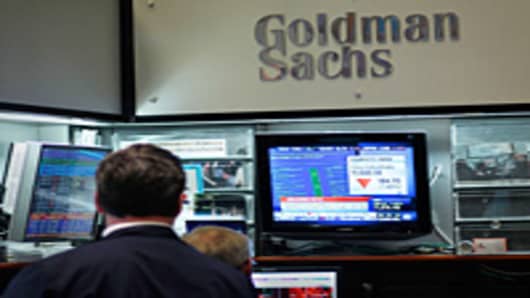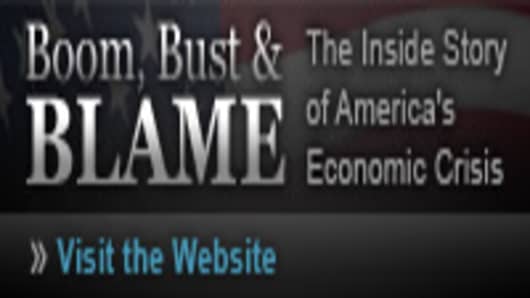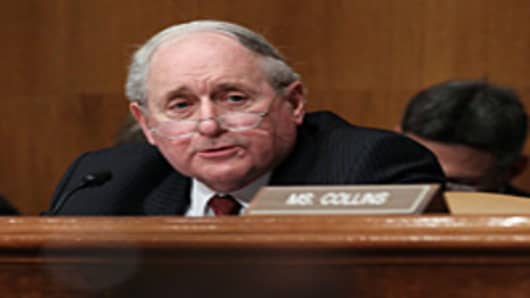Conflicts of interest, excessive risk-taking and failures of government oversight triggered the financial crisis and helped push the country into the deepest recession since the Great Depression, concludes a new report by the U.S. Senate.
The two-year, bipartisan probe by the Senate Investigations Subcommittee examined the economic crisis and the role played by Wall Street in creating it.
The Republican and Democrat co-chairs of the committee agree on its findings.
"The report tells an inside story of economic assault that cost millions of Americans their jobs and their homes while wiping out investors, good business and [the] market," said Sen. Carl Levin(D-Mich).
"It shows without a doubt that lack of ethics in some of our financial institutions who embraced known conflicts of interest to accomplish wealth for themselves, not caring about the outcome for their customers," said Sen. Tom Coburn (R-Okla).
Much of the 635-page report focuses on the investment banking giant Goldman Sachs and its mortgage-related investments.
Congressional investigators say Goldman bought and sold billions of dollars in high-risk mortgage related investments, actively marketed poor quality CDOs to clients around the world, and then bet against its clients' interests and the mortgage market by taking large short positions in those transactions.
Documents in the report examine how in 2007 Goldman recommended four CDOs: Hudson, Anderson, Timberwolf and Abacus, to its clients without telling investors Goldman held short side positions on those same assets.
Sen. Levin called Goldman's behavior text book examples of conflicts of interest.
"The case study shows how conflicts of interest related to proprietary investments led Goldman to conceal its adverse financial interests from potential investors, sell investors poor quality investments and place its financial interests before those of its clients. That's a pretty damning, damaging kind of a finding."
Other case studies by the committee focus on the collapse of Washington Mutual Bank, the $300 billion dollar thrift that became the largest bank failure in U.S. history.
The investigation found WaMu securitized billions of dollars worth of high-risk, and in some cases, fraudulant mortgages without telling investors. The bank even sold some of its high-risk loans to Fannie Mae and Freddie Mac, playing one against the other and making more money in the process.
The oversight committee report also says the Office of Thrift Supervision "looked the other way" at hundreds of loan deficiencies at WaMu between 2003 and 2008. During its heyday, fees from Washington Mutual accounted for 15 percent of the OTS budget.
Finally, the report says that while massive ratings downgrades in July 2007 from Moody's and Standard & Poor's triggered the financial crisis, months earlier those same ratings agencies had judged many mortgage-related investments to be "as safe as treasuries."
The committee says "when sound credit ratings conflicted with collecting profitable fees, credit rating agencies chose the fees."
Among recommendations in the report:
- A requirement that the SEC rank credit rating agencies according to the accuracy of their ratings.
- New restrictions on proprietary trading and conflicts of interest.
- More protective capital, liquidity and loss reserve requirements.
The Senate Investigations Subcommittee is turning over its findings to the SEC and the Justice Department.
When Sen. Levin was asked if he is disappointed nobody has "gone to jail" in the two years since the financial meltdown, he answered, "There is still time and hope springs eternal."





